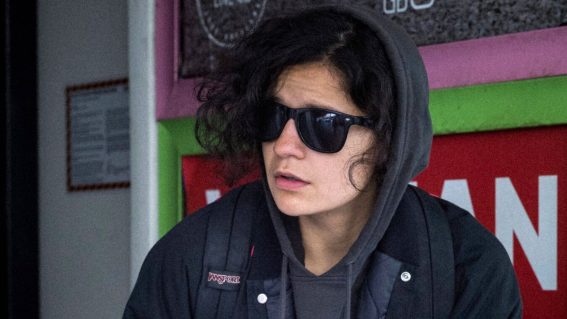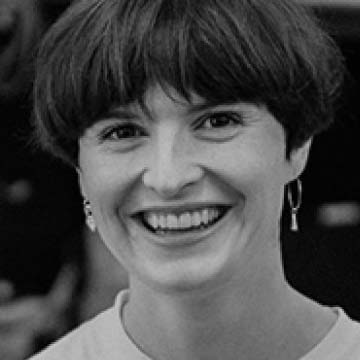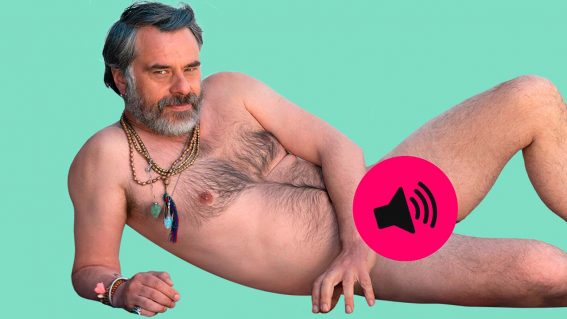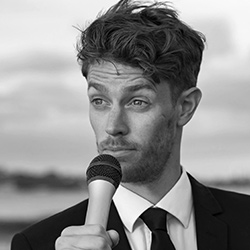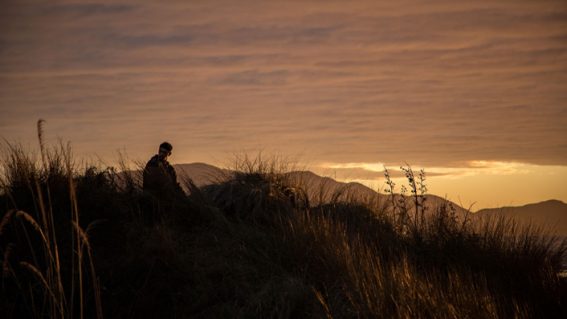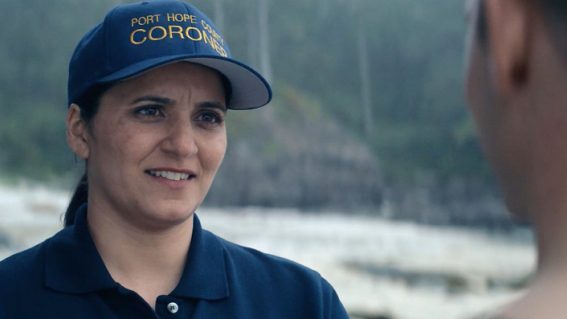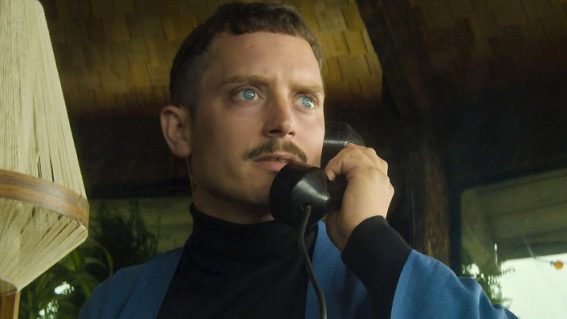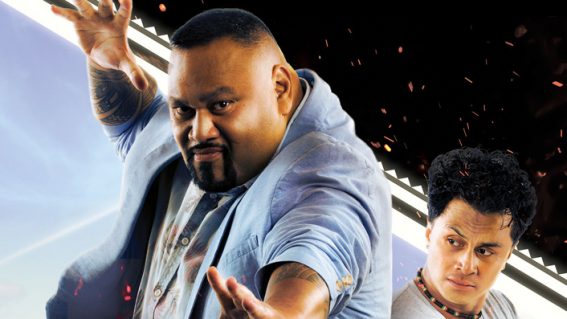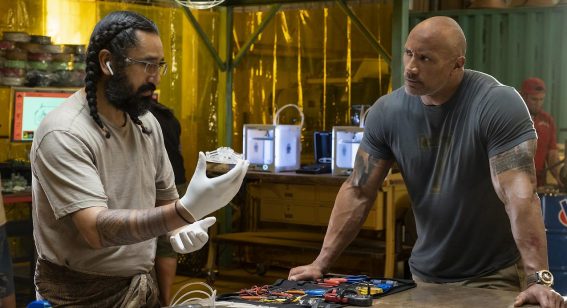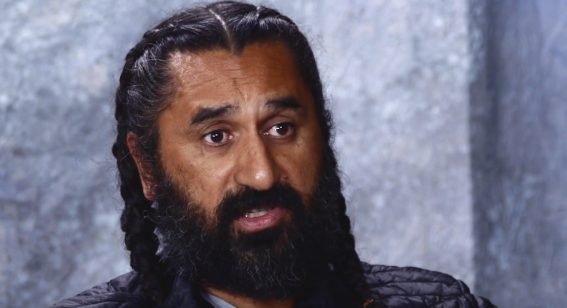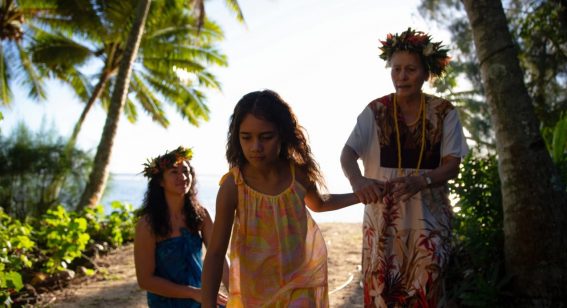Roseanne Liang on directing airborne action-horror Shadow in the Cloud
“For a good time call 0800 Shadow in the Cloud”

Roseanne Liang chats with Steve Newall about her action-horror Shadow in the Cloud
Chloë Grace Moretz stars in Shadow in the Cloud, a genre-smashing action-horror by Kiwi director Roseanne Liang. Steve Newall chatted with Liang about her film, which opens in cinemas February 4. Read on for Liang’s praise of Moretz’s iconic female action hero chops, the need to call out men for their behaviour towards women, and how the spectre of original U.S. screenwriter Max Landis (accused by multiple women of sexual and emotional abuse) has haunted the movie.
THIS INTERVIEW HAS BEEN EDITED FOR LENGTH AND CLARITY
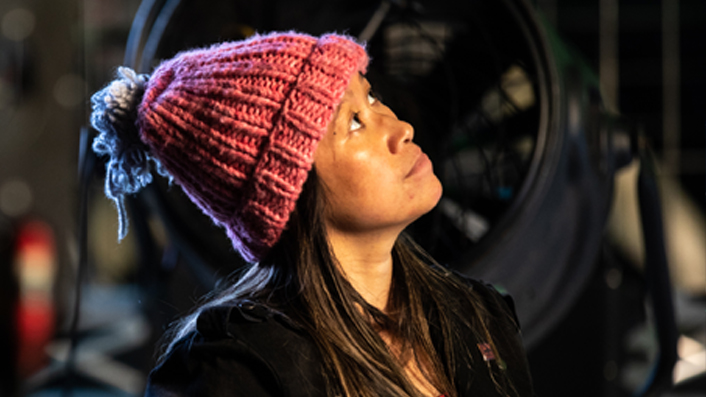
FLICKS: Shadow in the Cloud may not have had the international release you would’ve loved, given the circumstances with COVID-19, but how are you feeling about the response so far?
ROSEANNE LIANG: I’m feeling pretty stoked actually, yeah. I’m just in grateful mode at this point. I’m just so happy that people are enjoying it. I think it’s been polarising actually—some people just really don’t get it and they’re like, “What the fuck is this?” [laughs]. And then other people are like, “No. Here’s why it’s good.” Yeah, I love the discussion that it’s throwing up.
See also:
* All movies now playing
* All new streaming movies & series
* The best movies of 2020
Obviously, I want people to see this movie and it’s a movie that’s made for a midnight madness-style crowd with your mates, with some popcorn. Hopefully, with a drink inside you.
It’s meant to be seen in the theatre with friends. And unfortunately the world is not conducive to that experience anymore and might not be for some time. It’s just a bit dire, but I’ve been told that it’s on PVOD [premium video on demand] in 50 million households across North America and it’s doing well there—so people may not be able to go to theatres and watch it, but they’re able to enjoy it in the safety of their own homes and are still enjoying it and jumping up and down on their couches and yelling at the screen.
Based on the trailer, we see some of the film is quite contained but also expands out into action. For the early part of the film, was it challenging to keep the audience engaged with so much taking place in a confined space?
Yeah, it was. I mean, I think there was worry about the fact that the beginning would be boring or that the actor we used wouldn’t be able to sustain people’s interest—but then when you watch movies like Locke or Buried, you see how great those movies are.
I think what I loved about this movie is that it wasn’t just one conceit. It breaks out 40 minutes in to do something else and something completely different, which to me is part of the joy of making this movie and always was the attraction for me. I love a genre-smash. Not everyone does, but I do. So, yeah, it was scary, but I feel proud of what me and the team were able to pull off together.

So many things combine to make that first half of the movie work but clearly it rests on a really great performance. It’s a real treat for an audience to watch someone have that much camera time and hold something together as strongly as Chloë does through that part of the film.
I mean, she’s rare. There’s not many like her, I think. Someone who has the physical prowess that Chloë has… and she’s technically really brilliant. She can learn a 20-beat fight in just a minute. I think maybe because she was just a kid when she did Kick-Ass, it’s in her bones. She learnt it at that really special age, but she also has the depth of someone much deeper—like a Meryl Streep, or a Tom Hardy. She has that acting depth that you can see, the micro-expressions.
I’ve watched her performance thousands of times, I feel, through a very long edit process and I never got sick of watching her. I’ve gotten sick of watching other actors. Not in this movie, but when you make work you just get tired and you’re like, “Oh, it’s this person again,” or “I’ve seen this performance over and over again”—but it felt like I saw something new every time I watched her and that was across hundreds of re-watches, hundreds and thousands of re-watches. So, that just speaks to her craft and her ability and her talent.

Selfishly, I want Chloë to do more action because I think she’s really good at it. And, in fact, I could have done with more action in this movie! But she really is special. Like I said, I don’t know that there’s many like her. Across time, sure, people bring up Ellen Ripley and Sarah Connor in terms of iconic female action heroes. Chloë herself brought up Indiana Jones as a reference for a kind of like a messy fighter, a brawler, but who else is doing work like this? Maybe Angelina Jolie across Salt and Mr. and Mrs. Smith. And then there’s Charlize Theron, of course, starting from Aeon Flux and going through Mad Max: Fury Road to Atomic Blonde.
But other physically muscular action female stars—who are they? There’s not many of them. And then also nailing the performance stuff. It was a real treat, to be able to fire on all cylinders.
As far as the timing of the preproduction and coming on board the film goes, was Chloë attached to the film when you came on board, or were you part of casting her?
She came on slightly after me but not too long after I came onto the project. The producer who’d brought me the script, once we’d negotiated the removal of [screenwriter] Max Landis, I had a meeting remotely with Chloë and we just vibed immediately on Maude Garrett, the main character.
You mention Landis – how difficult an experience was it for you when that became public with so much discussion around it?
I think that people want to talk about it because it’s something that needs discussion. And different people want to talk about it for different reasons. There’s the issue of what we do with Max and what should be done with Max—there are allegations, very serious allegations, that were raised against him that actually came out after we’d shot the film and there is yet to be an investigation in terms of those allegations. And that’s a judicial question.
Then there’s something that happens in Hollywood all the time, or just movie-making all the time. The script will come to you as a director and you’ll connect with it and then you don’t work with that writer again. That’s actually really common. And this is what’s happened in this situation, which is that Max was not involved. Once I came on, Max was not part of it and I never met him.
But then, the spectre of Max has haunted this movie. People think it’s complicated but it’s not really. I think that people who commit criminal offences should be prosecuted and I was the one who made this movie. Well, I was the director of this movie. I didn’t make this movie. I made this movie with hundreds of other people. Like any movie, I couldn’t have made it without my team and none of those people, and none of those hundreds of those people are Max Landis.
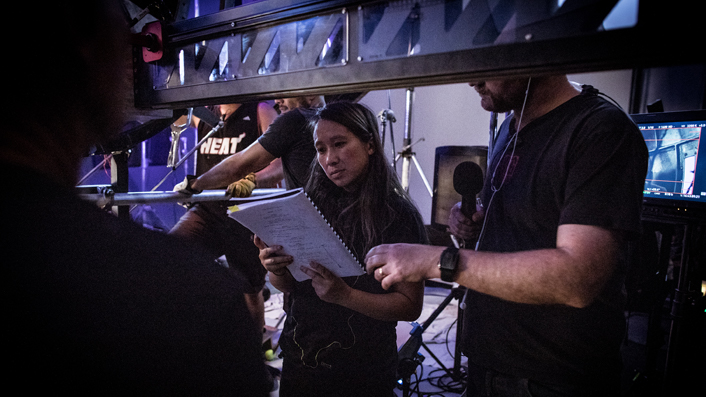
There’s a lot of bad male energy in this film and this is a time when we keep seeing examples of that. How critical a component of the film is this?
I think it’s a very fundamental part of the film because it’s one of the major adversities that the main character has to face and I thought it was really important to kind of lean into it, not sugar coat it. When I received the script, all the men seemed to be one and sure they are a wolf pack, but I worked really hard, with feedback from the producers, making sure that each of the voices earned its keep inside the wolf pack. From a basic story craft perspective, every voice has to earn its keep, so how are they different from each other.
You’ve got the Samoan pilot who is played by Beulah Koale who belittles Garrett—he doesn’t think that she knows her shit in terms of aviation. And then you’ve got the guy macking on her, the Dorn character played by Benedict Wall, he’s just sexually attracted to her. And then you have Nick Robinson’s character who is just kind of like a puppy. He’s just going along with it. He just wants to be accepted in the wolf pack and he will join in with the wolf pack because he wants to be one of the boys.
I mean this was something that we did in consultation with the male producers, with people who were giving feedback on the script, the financiers of the studio, and with the actors. Some of the lines that are in the movie, some of the worst lines are actually actors riffing and us creating the space together where they can lean into their most locker room version of themselves and go there, trying to rile her up, get a rise out of her. I learned a lot about the wolf pack of one-upmanship when there’s a woman that you’re trying to impress or a woman who is going to be the target of your jibes.
You always want to one up each other when you’re in this wolf pack situation and we had to lean into it because it’s true as it was back then. It’s more true now that men behave with impunity towards women and we need to call that out. I’m not saying it’s just men. Of course, women act with impunity too, but you know, we get screen shots. We have the receipts now of how people, of how men, talk to women with impunity. And you can’t say to me that the dialogue in the movie is unrealistic. If anyone says to me that that’s not real or that I’m just hating on men, they’re sticking their heads in the ground. There’s so many examples of men’s words being so hateful. And hey, let’s see it. Let’s see how it affects someone and be in their shoes while they’re experiencing it.
A lot of that is even more effective or impactful when it’s just Chloë onscreen and the focus is just on her reaction. We’re much more aware of how it’s impacting someone else.
Yeah, exactly. One of the most important, and another fundamental, part of this project was that whoever’s watching is in her shoes. You’re always inside her point of view, hopefully. Of course, there’s going to be some people who are like, “She’s just a misandrist. You’re just hating on men.” But for people who are ready to engage, it doesn’t matter whether you’re a man or a woman, you can experience what Garrett is undergoing.
All of us have been in situations where they feel unsafe. Doesn’t matter who we are, we can all empathise with her point of view. So that was always my hope is that we stay with her. We’re in her shoes. We understand by the end why she’s doing what she’s doing.
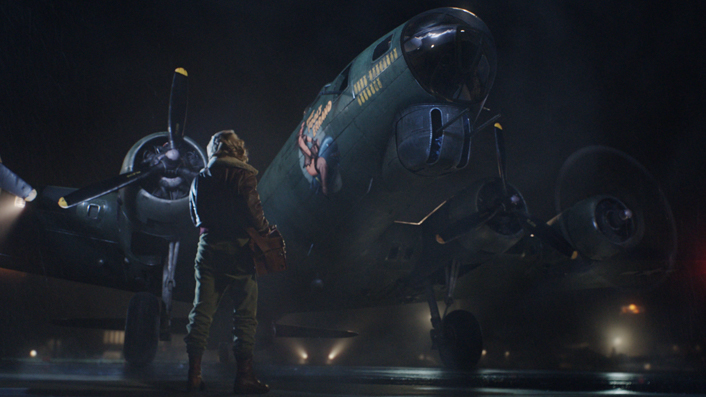
One of the things that’s going to be obviously really great for New Zealanders is getting to have one of our parochial, culturally insecure moments of seeing references to New Zealand onscreen. You’ve made a film with Point Break moments in it. Did you find it enjoyable knowing that was going to happen when people here saw it?
Absolutely, I totally understand. At one point, I was going to put Whenuapai Air Base on the opening chyron. We ended up putting Auckland Air Base but yeah, you think, “Oh, I should do this.” But then people might get confused. But there’s absolutely a sense of pride, like we can make those films that we grew up with here and there’s not weirdness around that.
I feel like New Zealand’s having a moment though. I’m having meetings with people in LA and every time they ask “Where are you?” I say, “I’m in Auckland, New Zealand,” and they’re like, “Oh, my god. I want to be there.” And there’s like a fetishisation of our accents. Like, “Oh, your accent’s so cute.” But the cultural cringe that we grew up with, that’s still inside us, unfortunately.
When was the last time I heard a New Zealand accent in something? Oh, it was on The Mandalorian, I think. And you go, “Oh, what? But of course, why not!” I mean, that happened with the prequels already…
Anyway, I think I’m overcoming my own cultural cringe, and I guess this film is my way of saying, “Hey, I’m okay with it [laughs]. Let’s put it out there.” Taika can manage to make it cool in Thor: Ragnarok, so surely we should embrace it more.
If that’s not something to be proud of I don’t know what is.
That is something to be proud of. Overcoming cultural cringe. Here’s what I’m really proud of, is that the people who love Shadow in the Cloud and the people who hate it are equally gender split. It’s not all “men hate this movie, and women love this movie”. Men and women love this movie, and men and women hate this movie. And I love that because I don’t want to make a feminist movie that people assume is man-hating. It’s not. That’s not what it’s about. I’m really happy about that.

If I was the person making this film, I’d also be really proud of how my film wrapped up in its final moments.
I do love that moment. If I’m going to be honest, that wasn’t in the original script that I received. Yeah. Chloë went to [SPOILER] to prepare for that scene. I am super proud of the ending without giving it away as well.
Are there any other thoughts that you’d like to share about the film?
I don’t know what else to say other than, for a good time call 0800 Shadow in the Cloud. It’s not “cinema”, it’s a movie. But I hate saying that! I cringe because my DOP is a master. There are cinematic elements in it, and we made it within the spirit of loving cinema. Everyone who works on this project, all my HODs, are meticulous nerds, and we care deeply about good work on screen. I don’t quite know how to say “it’s popcorn, but it’s substantial popcorn”.






